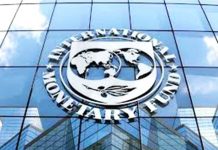The National Petroleum Authority (NPA) is confident in its ability to help the government achieve its goal of converting 50% of Ghanaians to the use of gas for cooking by 2030, according to Dr Joseph Wilson, Director of Research, Monitoring and Evaluation at the NPA.
Dr. Wilson explained that this effort aligns with Sustainable Development Goal (SDG) 7, which aims for universal access to affordable, reliable and modern energy services by 2030.
He noted that the Cylinder Recirculation Model (CRM) is a critical part of this strategy.
Speaking at a sensitization program in the Western Region, Dr. Wilson, who represented the NPA’s CEO, Dr. Mustapha Abdul-Hamid, emphasised the importance of shifting from traditional fuels like firewood and charcoal to Liquefied Petroleum Gas (LPG).
This shift, he noted, would not only improve public health but also contribute to environmental preservation.
The CRM involves the centralised refilling and distribution of LPG cylinders, replacing the traditional method, where individuals refill their own cylinders at fuel stations.
Under this model, pre-filled LPG cylinders are distributed to various parts of the country, offering a safer, more efficient and convenient way to access gas.
Dr. Wilson stressed that to ensure the success of the CRM, the NPA is working with the Ministry of Finance and other stakeholders to guarantee the availability, accessibility and affordability of LPG.
One major advantage of CRM is its potential to reduce deforestation and land degradation caused by the widespread use of firewood and charcoal in rural areas.
The shift to LPG would help preserve the country’s forest cover and lower Greenhouse Gas emissions, contributing to the global fight against climate change.
Dr. Wilson also highlighted the severe health risks associated with the use of biomass for cooking.
The burning of firewood and charcoal releases harmful pollutants such as carbon monoxide and particulate matter which can cause respiratory diseases.
Women and children, who are typically more exposed due to their role in household cooking, are particularly vulnerable.
By expanding access to LPG through the CRM, indoor air pollution would be significantly reduced, improving public health in rural communities.
Additionally, the CRM would promote the safer handling of LPG, reducing accidents related to improper refilling and transportation of cylinders.
Dr. Wilson urged the public to support the transition to LPG by spreading awareness among friends and family. He reiterated that the switch to gas would not only safeguard the environment but also protect the health of loved ones.
The sensitisation program, held in Takoradi, was attended by a wide range of stakeholders including nurses, students from Takoradi Technical University and Holy Child School, members of the Wives of Officers Association and various other groups.
Representatives from the Western Regional Fire Service also demonstrated safe practices for using LPG in the kitchen, emphasising the dos and don’ts to prevent accidents.
Earlier in the program, a Supervisor with the Gas Directorate at the NPA, Mr Johnson Gbagbo, took the audience through the CRM value chain from the bottling plants through the exchange points to the consumer.
The Ghana National Fire Service, a critical ally to the NPA in the sensitisation of the public on the safer use of LPG, took the audience through basic drills on how to handle LGP at home as source of fuel for cooking.
The Western regional Manager of the NPA, Madam Sandra Aido gave the welcome address
The Head of Consumer Services department of the Corporate Affairs department, Madam Budu Nyarko, under whose auspices the program was organized by Head of Communication, Sandra Aido and Mohammed Abdul-Kudus respectfully.









